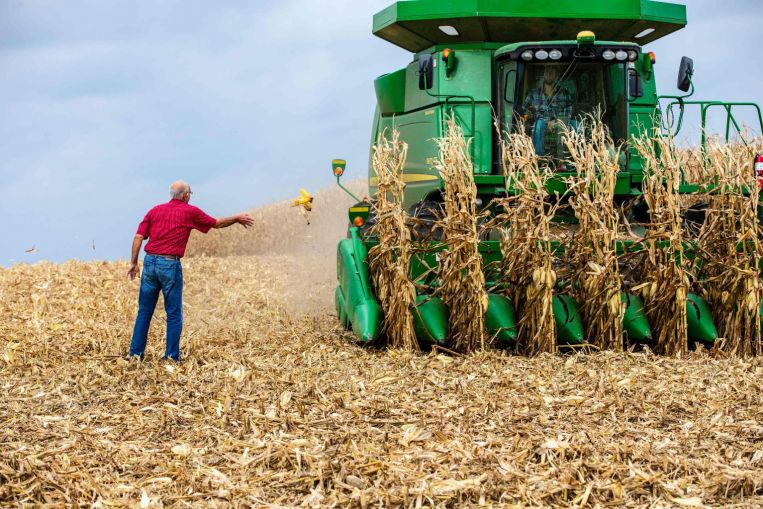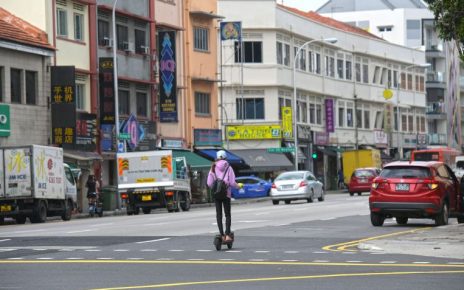
CHICAGO • The year was already shaping up to be difficult for Midwestern farmers. Incomes have slipped, farm bankruptcies have increased and widespread flooding has inundated the region, killing cattle and turning some fields into unplowable pits.
Then came the news from Washington on Friday: Trade negotiations with China, long a reliable buyer of Midwestern crops, . President Donald Trump , and the .
The breakdown was another blow for American farmers, who just a few weeks ago thought a trade deal was imminent. They now begin another growing season with uncertainty about who will buy their crops and whether they can break-even.
Though Mr Trump pledged on Friday to help farmers – part of the coalition that put him in office – there were signs of frustration. They raised questions about his negotiating tactics. They said they were worried about what would come next given an already-struggling agricultural economy.
“Many people are just torn because people want to support the President of the United States,” said Ms Nancy Johnson, executive director of the North Dakota Soybean Growers Association. “But it’s very stressful to be in the middle of these very challenging negotiations. Because you’re the person who can’t take hope to the banker to get his loans for operating.”
Mr Trump is generally popular in the rural Midwest. He carried all but two Midwestern states in 2016, won more than 90 per cent of the vote in some agrarian counties and has been praised for rolling back environmental regulations. But his propensity for imposing tariffs has clashed with the free-trade instincts of the region’s farmers, who have watched lucrative overseas markets for soya beans and other crops shrivel. For some Midwestern Republicans in Congress, the use of tariffs has been a rare point of disagreement with Mr Trump.
Ms Jolene Riessen, who farms near Ida Grove, Iowa, said she remained hopeful that a trade deal would be reached, but she said that the drawn-out negotiations had already hurt her business. “I would just say, ‘Get something done, move ahead, get something done’,” said Ms Riessen, 58. “The uncertainty is a killer for us out here.”
She said she scaled down her cattle operation, partly because of the trade war, and delayed selling some of her soya bean crop from last year. She said she remains worried about making new investments in her farm.
“When the farmer does well, so does the rest of the United States,” said Ms Riessen. “And we’ve just been kind of struggling.”
Mr Trump, who has accused China and other countries of taking advantage of the United States on trade, said he would help farmers weather the trade uncertainty. On Twitter, he suggested that the US government could buy billions of dollars of agricultural products from farmers. Agriculture Secretary Sonny Perdue said separately that Mr Trump had directed his department to work on a plan to help farmers. “@POTUS loves his farmers and will not let them down!” Mr Perdue, referring to the President, said on Twitter.
In Shelby County, Indiana, Mr Phil Ramsey, who grows corn, soya beans and wheat, said he appreciated the President’s reasons for revisiting trade deals, but said the ailing farm economy had been brutal in deeply personal ways. He said he was going without health insurance to save money and has delayed some equipment purchases.
“I’ve gone from being very patient to being very anxious.”
But Mr Ramsey, a Republican who voted for the President, said his primary frustrations were with China, which the United States accused of reneging on some trade promises, and with Congress, which has not approved a new trade deal with Canada and Mexico.
“He can’t do it by himself,” Mr Ramsey said of the President. “He needs the support of all the US government.”



